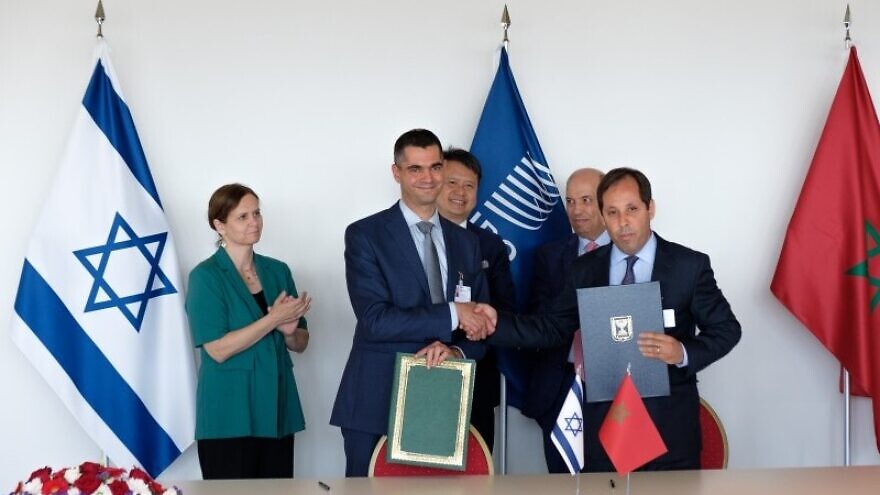Israel and Morocco signed their first intellectual-property agreement on Monday in what its diplomats are calling a milestone for entrepreneurial cooperation between the two countries.
Ofir Alon, executive director of the Israel Patent Office, and the director general of the Moroccan Office of Industrial and Commercial Property Abdelaziz Baqiqi penned the Israel-Morocco “Memorandum of Understanding on Intellectual Property” on the sidelines during a meeting of the World Intellectual Property Organization (WIPO), an official agency of the United Nations.
“This agreement will enable entrepreneurs and innovators to build a more prosperous and sustainable future,” said Meirav Eilon Shahar, Israel’s Ambassador to the United Nations in Geneva. “We value this bilateral cooperation and will work to expand it.”
Rabat and Jerusalem agreed on building mechanisms for promoting bilateral cooperation in protecting industrial property. Planned initiatives include bolstering knowledge-sharing between intellectual-property protection agencies and helping small- and medium-sized businesses with intellectual-property protection.
The pact marks a major development in the countries’ bilateral relationship since signing the Abraham Accords in December 2020.
Israel’s Permanent Mission to the United Nations in Geneva described the agreement as a “testament to the strong growing relations between the two countries to create a more peaceful and prosperous region.”
Morocco’s Ambassador to the United Nations in Geneva Omar Zniber said, “The State of Israel and the Kingdom of Morocco are achieving a historical step within the framework of WIPO’s activity and perspectives, building on the relaunch of our bilateral relations.”
He added that the agreement shows “our will to develop our cooperation and partnership in innovation, creativity and high technology, targeting fundamental fields for both Israel and Morocco, such as water governance, agriculture, science technology and competitiveness.”


























